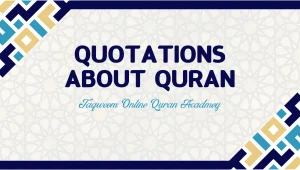Table of Contents
ToggleWhy Surah Al-Fatiha Benefits Are Often Overlooked
You stand to pray. You start reciting. You go through the same motions again and again. But deep down… it feels kind of hollow. Empty. Like your heart’s not really in it.
Most of us have been there. And strangely, it often happens during the part we repeat the most — Surah Al-Fatiha.
It’s easy to overlook it. We recite it in every single unit of prayer, every day. But sometimes, because it’s familiar, we stop really feeling it.
But what if Surah Al-Fatiha isn’t just a “routine” part of prayer… What if it’s actually the doorway to something deeper — clarity, healing, connection?
Let’s talk about that.
What Is Surah Al-Fatiha ?
Surah Al-Fatiha is the very first chapter of the Qur’an. It’s only seven short verses, but it’s the core of every prayer. Without it, your salah isn’t complete.
The name “Al-Fatiha” means The Opening. It’s like the front door to the entire Qur’an — and maybe even the front door to understanding your faith more deeply.
Here’s what’s in it, verse by verse:
- In the name of Allah, the Most Merciful, the Most Compassionate.
- All praise belongs to Allah, Lord of all worlds.
- The Most Merciful, the Most Compassionate.
- Master of the Day of Judgment.
- You alone we worship, and You alone we ask for help.
- Guide us to the straight path.
- The path of those You’ve blessed—not the path of those who went astray or earned Your anger.
That’s it. Simple words. But they carry big meaning.

Why It Matters More Than We Think
Surah Al-Fatiha isn’t just an intro. It’s actually the foundation of everything that comes after. It’s like the mission statement of Islam — praising Allah, asking for guidance, committing to faith.
But there’s more. The Prophet (peace be upon him) once said that no other scripture — not even in previous books — contains anything like it.
In fact, every time you say it in prayer, Allah responds to you. It’s not just you reciting. It’s a conversation.
That alone changes the way you approach it.
How Does It Actually Help in Real Life?
Let’s break it down. Here’s what people actually experience when they connect with this Surah deeply — not just recite it.
1. It Calms Your Mind
When your thoughts won’t slow down, these verses bring you back to the moment. Especially “You alone we ask for help” — it reminds you that you’re not in this alone.
2. It Grounds Your Faith
Sometimes, doubts sneak in. Or you feel far from Allah. Reciting Al-Fatiha with intention helps rebuild that spiritual bridge.
3. It Gives Direction
“Guide us to the straight path” is not just a line — it’s a lifeline. If you’re unsure about a decision, a job, a relationship… this Surah is a daily reminder to ask for clarity.
4. It Heals the Heart
People dealing with grief, anxiety, or guilt often say this Surah becomes their comfort zone. It’s been used for spiritual healing (ruqyah) for centuries.
5. It Softens Your Prayers
If your du’as feel stiff or forced, starting with Al-Fatiha opens up your heart. It sets the tone. It slows you down. It gets you ready to feel the rest of your prayer.
A Real-Life Example
A brother I know was going through a divorce. Everything felt like it was falling apart. He didn’t have the energy to make long prayers, so he just kept repeating Surah Al-Fatiha — over and over.
He told me:
“I couldn’t find the words to talk to Allah. But Surah Al-Fatiha said everything I couldn’t say.”
That’s the thing. It becomes your voice when you don’t have one.
Let’s List the Surah Al-Fatiha Benefits
Here are the real, practical benefits of Surah Al-Fatiha:
- Spiritual grounding when you feel lost
- Mental clarity during tough decisions
- Emotional healing for sadness and grief
- Deeper connection in your daily prayers
- Better focus and presence in salah
- Consistent reminder of who’s in control (Allah)
- Daily protection when recited with intention
- Renewed purpose in your spiritual routine
Even if you focus on just one of these at a time, it’s worth it.
What Happens When You Start Paying Attention to It?
You might start noticing small changes:
- You take a little longer in prayer.
- You feel calmer after salah.
- You think more clearly when facing a choice.
- You stop rushing through your faith.
That’s what Surah Al-Fatiha does. It brings you back to your center.
And if you teach it to your kids, repeat it when you’re stressed, or whisper it in the dark — it starts to live with you. Not just in your prayer, but in your heart.

What’s Next?
Surah Al-Fatiha isn’t going anywhere. But how we connect with it can change. You might:
- Memorize a deeper tafsir (explanation)
- Reflect on one verse per week
- Try reciting it slowly with meaning
The point isn’t to master it — it’s to feel it. To let it be part of how you talk to Allah every day.
FAQs
What happens when you recite Surah Fatiha 100 times?
Reciting Surah Fatiha 100 times with sincere intention is believed by many to bring relief from distress, increase barakah (blessings), and strengthen one’s connection with Allah. It can also serve as a form of spiritual healing and protection.
What are the benefits of reciting Surah Fatiha 7 times?
Reciting Surah Al-Fatiha 7 times is a common practice in ruqyah (spiritual healing) to seek relief from illness, anxiety, and negative energy. It’s often used as a remedy for both physical and emotional ailments.
What are 10 benefits of Surah Fatiha?
- Opens the heart to guidance
- Brings peace in anxiety
- Enhances the quality of salah
- Acts as a spiritual cure
- Deepens connection with Allah
- Strengthens trust (tawakkul)
- Helps in decision-making
- Offers protection from harm
- Increases focus and mindfulness
- Nourishes gratitude and humility
What are the benefits of reciting Surah Fatiha 41 times?
Many use 41 recitations of Surah Fatiha to seek specific outcomes like healing, ease in difficulties, or even to bring positive change in one’s life. It’s also said to enhance spiritual energy and clarity.
What is the benefit of reciting Surah Fatiha 41 times for marriage?
Reciting Surah Fatiha 41 times with dua is often practiced by those seeking righteous marriage or harmony in existing relationships. It’s believed to remove obstacles, soften hearts, and invite divine blessing into relationships.
What are the benefits of Surah Fatiha 1000 times?
Reciting Surah Fatiha 1000 times is an intense spiritual practice some use during extreme hardship or for major life requests. It’s believed to bring divine intervention, deep spiritual cleansing, and powerful emotional release.
What are the benefits of Surah Fatah (not Surah Fatiha)?
Surah Al-Fath (The Victory), a different chapter of the Qur’an, is known for bringing victory, success, and divine help. It’s often recited for triumph over challenges, especially in difficult worldly affairs.
What are the benefits of drinking water after reciting Surah Fatiha?
Drinking water over which Surah Fatiha has been recited (with sincere dua) is a common healing method in traditional Islamic practices. It’s believed to help with physical ailments, spiritual blockages, and emotional distress.
What happens when you recite Surah Al-Fatiha 70 times?
Reciting Surah Fatiha 70 times is believed to bring powerful healing, especially when done with full concentration and trust in Allah. It’s often recommended during intense illness or deep emotional pain.
Which Surah is recommended for success?
Surah Al-Fatiha is foundational for guidance, but for success in both worldly and spiritual matters, many scholars also recommend Surah Al-Fath, Surah Al-Waqi’ah, and Surah Al-Inshirah. These Surahs are known to ease difficulties and open doors.
A Quiet Thought to End With
Maybe the question isn’t “How many times have I recited Surah Al-Fatiha?”
Maybe it’s: How many times did I really listen to what I was saying?
Next time you pray, slow down. Say it like you’re speaking from your heart.
You might be surprised what it gives back to you.






